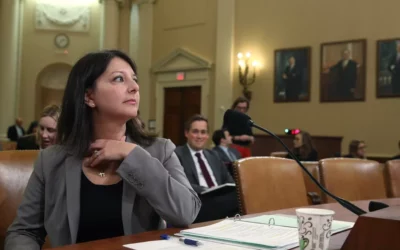WCH In the News

Leveraging the promise of a green economy to promote racial equity
Original article courtesy of Triangle Business Journal.
Updated 8:00AM ET, Thurs June 03, 2021

James Johnson, Jr. is a professor of entrepreneurship and strategy at UNC’s Kenan-Flagler Business School. UNC
A propitious opportunity exists to continue the fight for racial equity in both education and business by specifically working to eliminate building-related illnesses in public schools caused by legacy pollutants, poorly functioning ventilation systems, other delayed maintenance issues, and damage from floods and other adverse weather. The problem, dubbed the “sick building syndrome,” reportedly affects an estimated 36,000 school buildings nationwide. Conditions in these buildings harm children’s cognitive learning and physical development; heighten absenteeism due to chronic illness; and reduce matriculation and graduation, and potentially years of healthy life expectancy.
In North Carolina, the sick-school building syndrome – an estimated $3.1 billion problem – mainly affects children of color who attend aging and rapidly deteriorating schools in both urban and rural low wealth counties. The estimated cost to eliminate hazards in the typical school building is $4.1 million, according to the Government Accountability Office.
We can address the problem through mission-driven entrepreneurial innovation. That is, we can mobilize and deploy historically marginalized and excluded groups as entrepreneurs and workers to transform sick school buildings into green facilities. These transformed green school buildings will have proper lighting and ventilation as well as flexible indoor and outdoor spaces that maximize learning, socialization, creativity, and physical and socio-emotional development and the well-being of school-age children.
Most sick school buildings are in high poverty, economically distressed communities that lack the local tax revenue to adequately address retrofit and rehabilitation. More than a third of the schools are in Opportunity Zones. Working with individuals and organizations to invest in tandem with the forthcoming Congressional focus on infrastructure, the possibilities to create green buildings that promote better health outcomes may be realized.
To secure investments, especially in the current “let’s undo the debilitating effects of systemic racism” climate, we can advance the enlightened self-interest value propositions. Investing in the health, safety and successful education of the next generation of talent must be a strategic priority for the state to maintain a competitive edge in an economy rooted in creativity, innovation and entrepreneurialism. The long-term adverse health effects of inaction will be far more costly than proactively fixing the problem now.
We can engage minority- and women-owned firms participating in the state’s Historically Underutilized Business designation that are certified and prequalified to do work in the two supply chains required to fix sick school buildings. Some of the existing firms specialize in hazards assessment and clean-up, while others are experts in green-building design and retrofitting.
With an eye toward creating even greater equity in the state’s emerging green economy, we also can create a pipeline of new, diverse, homegrown, mission-driven business ventures in environmental remediation and green-building retrofitting in collaboration with North Carolina Community Colleges. For example, we should launch entrepreneurship training programs and sponsor reverse-pitch competitions in the community colleges that serve communities with major sick school building problems.
We can expand the workforce in the identified occupations required to transform sick school buildings into green facilities by expanding existing new green jobs training and certification programs offered in community colleges. In addition, we must invest in teachers’ professional development in environmental remediation and green design; and incentivize participating teachers to develop courses in environmental and climate justice for students interested in green jobs and careers. Further, we must work with existing green businesses in the sick school building clean-up and retrofit supply chains to create paid apprenticeship and internship programs for young people interested in green economy business and job opportunities.
To maximize participation of historically underutilized businesses and workers in such an initiative, we must invest in a “best-in-class” inclusive and equitable supply chain management system. Best described as a technology-enabled platform for contracting and procurement, the system will allow public school systems to successfully recruit certified and pre-qualified environmental remediation and green-building redesign and retrofitting vendors and monitor their performance with minimal effort from existing school staff. Such a system also will substantially reduce the paperwork and reporting requirements imposed on vendors in traditional, paper-based contracting and procurement systems – an enormous benefit especially to entrepreneurial startups and minority- and women-owned small businesses.
If properly implemented, this initiative will create economic development opportunities that are more inclusive and equitable. In the process, the initiative will generate greater health and well-being as well as shared prosperity for disadvantaged citizens and communities in our state.
Author James H. Johnson Jr. is the William Rand Kenan Jr. Distinguished Professor of Entrepreneurship & Strategy in the UNC-Chapel Hill’s Kenan-Flagler Business School. He serves on the Governor’s Andrea Harris Taskforce on Social, Economic, Environmental and Health Equity.
Other News
Mass Migration: Why are people moving south?
Mass Migration: Why are people moving south?Virginia’s demographics are changing. Jeanne Milliken Bonds, public policy professor at UNC Kenan-Flagler Business School explains the shifts. Home | Publications | Mass Migration: Why are people moving south?...
The EIDC Economic Development Journal – Fall 2023
WCH In the NewsThe EIDC Economic Development Journal - Fall 2023 International Economic Development Council1275 K Street, NW, Suite 300 • Washington, DC 20005 • www.iedconline.orgChair: Jonas Peterson, CEcDPresident & CEO: Nathan OhleEditor: Jenny Murphy.November...
The painful pandemic lessons Mandy Cohen carries to the CDC
The painful pandemic lessons Mandy Cohen carries to the CDC"North Carolina initially failed to prioritize testing for people who were exposed to #COVID19 because of where they live or work." - Jeanne Milliken Bonds, Professor of Social Impact Investing at the...



